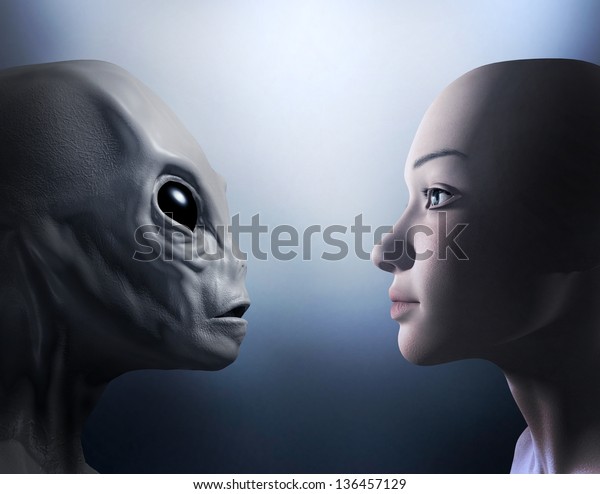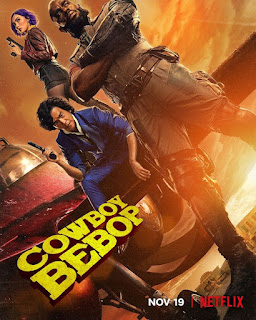Along the way, the science fiction stories I'd been writing since I was 13 began to grow more believable. With my BS in biology and a fascination with genetics, I started to use more science in my fiction.
After reading hard SF for the past 50 years, and writing hard SF successfully for the past 20, I've started to dig deeper into what it takes to create realistic alien life forms. In the following series, I'll be sharing some of what I've learned. I've had some of those stories published, some not...I teach a class to GT young people every summer called ALIEN WORLDS. I've learned a lot preparing for that class for the past 25 years...so...I have the opportunity to share with you what I've learned thus far. Take what you can use, leave the rest. Let me know what YOU'VE learned. Without further ado...
Mammal, cephalopod, insect, reptile, bird, fish, and (of course), plants, have hugely different suites of sensory abilities. While we like to think that Humans have the “best” sensoria, and while what we sense certainly serves us well, it isn’t by any means “perfect”.
In the Alien Worlds class I teach in Summer School, we do a brief exercise where we start with the five basic Human senses of touch, smell, taste, hear, and see. I IMMEDIATELY exclude “extra-sensory-perception” – no telepathy, telekinesis, clairvoyance, precognition, telepresence, telephone, teletubbie…They have to stick to senses we know and understand…
Let’s add instead proven alternative senses: magneto-sensory from migratory birds; electro-sensory of sharks in water; proprioception in Humans (knowing how to touch your nose even when your eyes are closed); sense of balance (we’d be a bit awkward walking on two legs if we didn’t have THIS one!); sense of temperature; sense of pain (I never considered this one until I read Steven R. Donaldson’s original Thomas Covenant The Unbeliever series.)
What if Humans could sense magnetic fields? What ramifications would there be? How would your life be different…
So, if I want to write believable aliens, then perhaps I could study creatures I can look up, study, and possibly even observe in a zoo or in nature!
How do I devise a test to see the ramifications of adding that “sense” to an alien? Also, we need to consider extending the five senses. For examples: elephants hear infrasound through their huge, flat feet. Snakes sense heat with “pit organs” on the forward part of their heads. Dolphins sense the world via ultrasound.
First let me reiterate: to create ALIEN Aliens, I can’t go willy-nilly changing everything. Then you have a truly incomprehensible gobbledygook of an alien. Also, what I alter needs to be something they can do without any kind of technology, because despite the evidence that other animals on Earth use “stone age technology”. You and I can ABSOLUTELY fly and live on Antarctica. But to do so, we need massive technological support. So, something natural…
Start a fire? Nah, too much tech there, even if you posit that our remote ancestors learned how to do it, it REQUIRES hands and air, which automatically eliminating fish, octopi, and plants.
How about domesticating something? Let’s look at a fascinating book I read years ago, GUNS, GERMS, AND STEEL by Jared Dimond. He had this to say about domestication: “Domestication…the most momentous change in Holocene human history. Why did it operate on so few wild species, in so few geographic areas…why did people adopt it at all…how did it spread?”
Are there instances of the “smartest of their Kingdom, Phylum, or Class” domesticating some other living thing? What does it mean to “domesticate” something?
Seems a definition is in order. According to Wikipedia: Domestication is “…a sustained multi-generational relationship in which one group of organisms assumes a significant degree of influence over the reproduction and care of another group to secure a more predictable supply of resources from that second group.” As well, tool using, city building, and even cooperation of normally incompatible organisms. Does it require some sort of “domestication” sense? Humans stopped trying to domesticate zebras long, long ago, focusing instead on the horse. “What’s the difference? They’re the same thing, only stripey!” Au contraire, personnes!
There is strong evidence that OTHER animals have learned to domesticate a species near them:
Insects: ants who farm aphids for their sweet secretions, and grow a fungus to feed the colony… https://modernfarmer.com/2014/04/meet-earths-oldest-farmers-ants/#:~:text=Ants%20have%20domesticated%20fungus%20similarly%20to%20how%20we%20domesticated%20many%20plants.&text=If%20cutter%20ants%20are%20the,called%20honeydew%20that%20ants%20eat.
Fish: first ever case of an animal domesticating another…https://newatlas.com/science/fish-first-animal-domesticating-species/
Octopus: city builders! https://www.smithsonianmag.com/smart-news/octopus-city-observed-180964936/#:~:text=In%20the%20waters%20of%20Jervis,scientific%20name%20Octopus%20tetricus%E2%80%8B.
Plants: a war between two very different plants to “a stranger peace…” https://www.sciencedaily.com/releases/2019/11/191115074414.htm
Birds: such legendary tool users, that their behavior became one of Aesop’s Fables, “The Crow and the Pitcher”: http://read.gov/aesop/012.html
Reptiles: even American alligators have become tool users! https://www.livescience.com/41898-alligators-crocodiles-use-tools.html
OK – I’ve established that animals can domesticate other animals, build cities, negotiate peace, and use tools…
So, how does the world look through the eyes of a representative of each of these “alien species”? I’ll start with the ant farmers. How do they see the world? What do we know about ant senses? “‘…we have demonstrated that we have the basic tools we need to act as ‘odorant receptor detectives” to map the ants “odor space” and identify the chemical signals that trigger specific behaviors in the ant’s extensive repertoire,’ Slone said.” (https://news.vanderbilt.edu/2012/09/10/ants-have-an-exceptionally-high-def-sense-of-smell/#:~:text=Ants%20have%20four%20to%20five,team%20of%20researchers%20has%20discovered.&text=They%20found%20the%20industrious%20insects,proteins%20that%20detect%20different%20odors.)
According to the article, ants have some 400 specific “odorant receptors”, including one for cooked beef and pork – the researchers don’t get that one! In particular, “The olfactory system of most insects is centered in their antennae and is broadly made up of three different classes of receptors: odorant receptors, that identify different aromatic compounds and pheromones; gustatory receptors (GRs), that distinguish between different tastes and react to some pheromones; and newly discovered ionotropic glutamate receptors (IRs), that are narrowly tuned to various poisonous and toxic compounds.”
According to a different article: “The two antennae on either side of the head serve as the ant's main sensory organs. Ants also have a pair of compound eyes that consist of many photoreceptors that allow them to see light and shadows. However, their eyesight is poor, and ants rely primarily on their sense of smell for understanding their environment.” (https://www.livescience.com/ant-facts.html).
All right, given that, I’m going to make a stab at giving an ant-like alien’s perspective when landing on Earth…I’ll be making a few assumptions, so bear with me.
“A squirt of strong impatience generated from the odor ring around their neck prompted it to fire a gentle puff of “Anticipatory patience” that would permeate the queen-commander’s chamber in the center of the ship. Her response was a whiff of apology. Two-Three-Four stepped down the ramp, followed by the rest of the landing party. Their larger size and heavier mandibles – as well as a small set of weapons chosen from an even larger collection and based on the preliminary assessment of life forms on Third Planet – were guaranteed to repel any accidentally hostile contact. The Smallers, like Four-Nine, Seven-Two, and Three-Eight, were less sensitive, heavily armed, and would do whatever Two-Three-Four needed them to do. Not that they were non-sapient, but they were only past their third and fourth molt. Each molt increased the size of the neural net. Each would take their place among the adults eventually. For now, they learned and did as they were told.
“Basic scans had revealed a fascinating mix of life on Third, though hardly unique in the experience of the Scent Memory on Homeworld. Two-Three-Four’s job was to investigate the unique characteristics. They scuttled away from the ship, not stopping for several hundred heartbeats. It released a waft of “listen” to the Smallers, and “commencing” to the queen-commanders chamber.
“Under its direction, the ship had landed in an area where the view all around was unimpeded to allow the winds of Third to pass over Two-Three-Four’s corona of antennae. Smallers made a ring around them and powered up their weapons. They would be far too busy with their primary job to protect themselves from any of Third’s life forms that might exhibit aggression. Two-Three-Four shut down its generic visual input and focused on the odors of Third.
“Dryness. Mild decay, common for any world with seasonal plant life. Then something of interest: hydrocarbons! While hardly unique to intelligent civilizations, it made clear that the sapients of Third could manipulate their environment in a profound way. Of course they’d detected cities, a gigantic web of orbital satellites, a large presence of life on Third’s airless moon and in several orbital habitats. They’d even discovered a crater on Fourth that held several hundred life forms. All well and good; intelligence of a species that likely came from Third – all of that was, while remarkable in the First Queen’s universe, was still fairly common.
“What they sought…ah! There! It was a very faint scent, but now that Two-Three-Four knew what to focus on, it found that the odor was present in small but significant quantities. It signaled the queen-commander a complex message, “Genetic manipulation! Artificial tissue construction!”
What else can we do? Sink into ALTERNATIVE senses and imagine the stories that can happen to your alien characters!
Resources: https://www.huffpost.com/entry/dog-cognition_n_8398810, https://www.discovermagazine.com/planet-earth/how-do-octopuses-experience-the-world, https://www.pbs.org/newshour/science/intelligence-test-shows-bees-can-learn-to-solve-tasks-from-other-bees, https://www.reptileencounters.com.au/news/the-5-most-intelligent-reptiles/#:~:text=The%20result%20was%20that%20the,reserved%20for%20birds%20and%20mammals.&text=And%20coming%20in%20at%20the,and%20weigh%20more%20than%2010kg, https://www.cnet.com/news/how-crows-are-the-smartest-birds-in-the-world/, https://www.discovermagazine.com/planet-earth/six-fish-that-are-smarter-than-we-give-them-credit-for, https://www.ambius.com/blog/are-plants-intelligent/, https://www.nature.com/articles/nature01019
Image: https://image.shutterstock.com/image-illustration/alien-human-600w-136457129.jpg
Guy Stewart is a husband supporting his wife who is a multi-year breast cancer survivor; a father, father-in-law, grandfather, foster father, friend, writer, and recently retired teacher and school counselor who maintains a writing blog by the name of POSSIBLY IRRITATING ESSAYS (https://faithandsciencefiction.blogspot.com/) where he showcases his opinion and offers his writing up for comment. He has 72 stories, articles, reviews, and one musical script to his credit, and the list still includes one book! He also maintains GUY'S GOTTA TALK ABOUT BREAST CANCER & ALZHEIMER'S, where he shares his thoughts and translates research papers into everyday language. In his spare time, he herds cats and a rescued dog, helps keep a house, and loves to bike, walk, and camp. He thinks out loud in print at: https://faithandsciencefiction.blogspot.com/















































